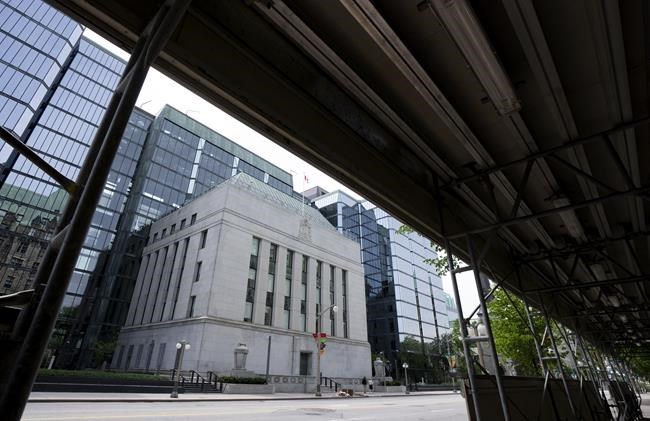OTTAWA — Businesses continue to see larger-than-normal wage and price increases ahead, but those expectations are shifting closer to what they were before the pandemic, a new survey by the Bank of Canada suggests.
In its business outlook survey released Friday, the central bank said that for the first time since the beginning of the pandemic, businesses on balance expected slower wage growth over the next year.
Firms on balance also expected their input and output prices to grow at a slower rate over the next 12 months.
“Although firms still see cost pressures and labour shortages as top concerns, these have been mentioned less and less over the past year,” the report said.
“In contrast, slowing demand has become a more important and widespread concern in recent quarters.”
Overall, the business outlook survey indicator pointed to a negative sentiment as businesses continued to expect their sales growth over the next year to be weak, with one in five firms expecting an outright decline in sales.
However, the survey for the second quarter found fewer firms expected an outright recession with one-third planning for a recession compared with half in the first quarter.
Meanwhile, the central bank’s Canadian survey of consumer expectations also suggested that while consumer inflation expectations for one and two years ahead have come down, they remain well above their levels from before the pandemic.
“Expectations for the growth of prices of some goods, such as food, gasoline and cars, have eased from their peak,” the consumer report said.
“This may reflect the fact that fewer people now think supply chain issues are the main cause of high inflation. Consumers are also reporting noticing more frequent promotional sales, particularly for groceries, after seeing very few in recent quarters.”
TD Bank economist Maria Solovieva said the surveys showed that businesses are still cautious given the high interest rate environment and expect future sales to continue to soften.
"Overall investment intentions continued to decline," Solovieva wrote in a report.
"Meanwhile, consumers feel a bit more confident about the economy's prospects on the back of easing inflationary pressures, strong labour market sentiment and expectations of lower interest rates."
The Bank of Canada raised its key interest rate target to 4.75 per cent at its last rate decision its continuing fight to bring inflation back to its target of two per cent.
The central bank has said that the longer inflation remains well above its target, the more likely it is to feed into inflation expectations, and the greater the risk that inflation becomes self-fulfilling.
Statistics Canada reported earlier this week that the annual inflation rate for May was 3.4 per cent, its lowest level since June 2021 and down from 4.4 per cent in April.
The consumer survey suggested that the cost of living was the top concern for Canadians with most mortgage holders expecting their payments to increase when it comes time for renewal.
“Most mortgage holders are confident they will be able to make these higher payments, though doing so will further constrain their discretionary spending,” the report said.
However, the proportion of Canadian consumers surveyed in the second-quarter report who think a recession is likely was 50 per cent, down from 58 per cent in the first quarter.
The report by the Bank of Canada came as Statistics Canada reported Friday that real domestic product in April was essentially unchanged after a gain of 0.1 per cent in March. However, the agency’s advance estimate for May pointed to a gain of 0.4 per cent for the month.
The central bank’s next interest rate decision is set for July 12.
This report by The Canadian Press was first published June 30, 2023.
Craig Wong, The Canadian Press



